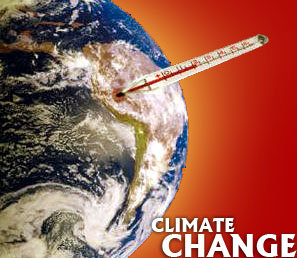Climate-change talks run into "stark reality" of politics
 Bangkok - United Nations climate change talks in Bangkok have advanced in forging a negotiating text for the Copenhagen Climate Summit but have stalled on key political issues, the chairman of the talks said Thursday, the penultimate day of negotiations.
Bangkok - United Nations climate change talks in Bangkok have advanced in forging a negotiating text for the Copenhagen Climate Summit but have stalled on key political issues, the chairman of the talks said Thursday, the penultimate day of negotiations.
The UN Framework Convention on Climate Change (UNFCCC) has been holding talks on a negotiating text for the Copenhagen climate summit in December, which will in theory provide a new climate deal to replace the Kyoto Protocol that expires in 2012.
The current session started on September 27 and will end Friday.
"This session has been characterized by real advances, real work to put together an important part of the architecture for the Copenhagen agreement," said Yvo de Boer, executive secretary of the UNFCCC Secretariat.
What the session has failed to deliver is on the political front, which is arguably beyond the mandate of the 1,000-plus negotiators.
"The stark reality that is out there is that unless we see an advance on the big political issues, unless we see an advance on ambitious emission reduction targets by industrialized countries and finance on the table, it is very difficult for the negotiators in the process to continue their work in good faith," de Boer said.
The three key political issues that must be decided in Copenhagen include a commitment by the industrialized countries to drastically reduce carbon emissions by 2020 and to agree to help finance the developing nations in adaptation to climate change, mitigation of the impact and technology transfer.
On the side of the developing countries, they too must demonstrate "meaningful engagement" in the process with pledges to reduce their own emissions on a more gradual basis, de Boer said.
He had more praise for the performance of the developing countries at the Bangkok talks than for the developed ones.
"What we have seen is a very constructive engagement on the part of developing countries to decide on the architecture of adaptation and mitigation and funding and to reduce emissions from deforestation but there has to be a quid pro quo, there has to be a significant advance on finance or what's the point," de Boer said.
Despite the lack of political leadership by the developed world at the talks, the UNFCCC chief was confident that the delegates will succeed to reducing the negotiating text from 280 pages to a more manageable 100, which is one of the meeting's main tasks.
There will be another five-day session at Barcelona next month before the Copenhagen summit. (dpa)